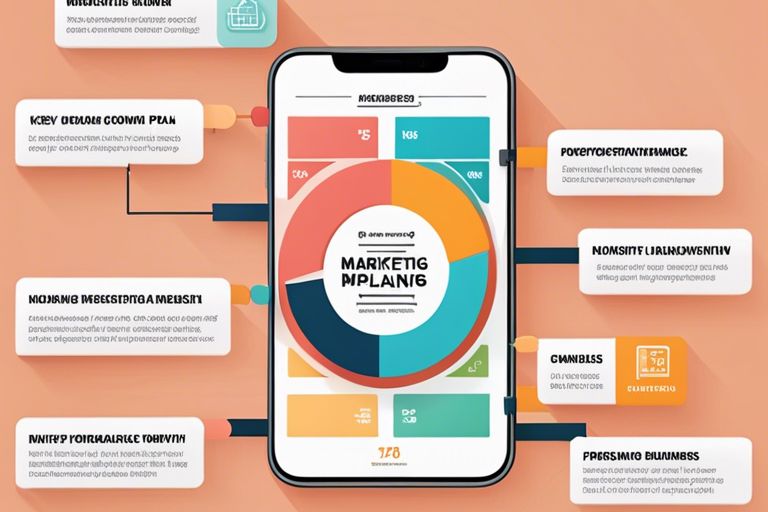Overwhelmed by the idea of creating a marketing plan that actually works and drives business growth? Look no further. In this comprehensive guide, we will break down the imperative steps to help you craft a strategic marketing plan that not only attracts your target audience but also propels your business to new heights. By following these proven strategies and practical tips, you will be well on your way to developing a marketing plan that yields tangible results and boosts your bottom line. Let's dive in and start paving the path to success!
Key Takeaways:
- Understand your target market: Conduct thorough market research to identify your target audience's needs, preferences, and behaviors. This will help you tailor your marketing strategies to effectively reach and engage with them.
- Set measurable goals: Create specific, achievable, and measurable goals for your marketing plan. Whether it's increasing website traffic, generating leads, or boosting sales, clear objectives will help you track progress and adjust strategies as needed.
- Utilize a mix of marketing channels: Leverage a combination of online and offline marketing channels to reach a wider audience. From social media and email marketing to traditional advertising and events, diversifying your approach can help maximize brand exposure and drive business growth.
Understanding the Foundations of a Strong Marketing Plan
Analyzing Your Target Market
On the road to creating a successful marketing plan, it is crucial to start by thoroughly analyzing your target market. Understanding who your customers are, their needs, preferences, and behaviors is necessary for developing effective marketing strategies that resonate with your audience.
Establishing Clear Marketing Objectives
Market research is the cornerstone of establishing clear marketing objectives. By conducting a thorough analysis of your industry landscape, competitors, and consumer trends, you can set specific, measurable, achievable, relevant, and time-bound (SMART) marketing objectives. These objectives will serve as a roadmap to guide your marketing efforts and track progress towards your business goals.
Crafting Your Strategic Marketing Approach
Choosing the Right Marketing Channels
One of the key aspects of crafting a strategic marketing approach is choosing the right marketing channels to reach your target audience. Assuming you have identified your target market, consider which channels they are most active on and which ones would be most effective in reaching them. Whether it's social media, email marketing, content marketing, or a combination of different channels, make sure to prioritize the ones that will give you the best return on investment.
Allocating Your Marketing Budget Effectively
Marketing budget allocation is crucial for the success of your marketing plan. Marketing. It's important to allocate your budget effectively to ensure that you are getting the most out of your marketing efforts. By analyzing the performance of different marketing channels and strategies, you can make informed decisions about where to allocate your budget for maximum impact.
This strategic approach will help you optimize your marketing budget and drive business growth. By continuously monitoring and adjusting your marketing strategies based on performance data, you can ensure that you are making the most out of your resources to achieve your business goals.
Developing Compelling Marketing Campaigns
Creating Engaging Content That Resonates
Your marketing campaigns need to focus on creating engaging content that resonates with your target audience. Whether it's through captivating visuals, compelling storytelling, or interactive experiences, your content should speak directly to the needs and desires of your customers. By understanding what motivates your audience and addressing their pain points, you can create content that not only captures their attention but also encourages them to take action.
Utilizing Data for Personalized Marketing Efforts
On top of creating engaging content, utilizing data for personalized marketing efforts is necessary for driving business growth. By analyzing customer behavior, preferences, and demographics, you can tailor your campaigns to individual segments, delivering targeted messaging that resonates with each group. This level of personalization not only increases customer engagement but also drives conversions and brand loyalty.
Compelling marketing campaigns are the cornerstone of any successful business growth strategy. By creating engaging content that resonates with your audience and utilizing data for personalized marketing efforts, you can drive brand awareness, customer engagement, and ultimately, business growth. Stay informed about industry trends, monitor campaign performance, and be ready to adapt your strategies to ensure long-term success.
Execution and Management of Your Marketing Plan
Implementing a Timeline and Task Management Strategy
Many businesses struggle with turning their marketing plan from a document into actionable steps. The key to successful execution lies in creating a detailed timeline and task management strategy. Define clear deadlines for each marketing initiative and assign responsibilities to team members. Consider using project management tools to track progress and ensure accountability.
Monitoring Performance and Making Data-Driven Adjustments
One critical aspect of managing your marketing plan is continuously monitoring performance metrics and making data-driven adjustments. Analyze key performance indicators such as conversion rates, website traffic, and social media engagement to gauge the effectiveness of your marketing efforts. Use this data to identify what's working and what's not, and make necessary adjustments to optimize your strategy.
Marketing plans are only effective if they are actively managed and adjusted based on performance data. By implementing a timeline and task management strategy, as well as monitoring performance metrics, businesses can ensure that their marketing plan drives sustainable growth and delivers measurable results.
Measuring Success and Optimizing for Growth
Setting Key Performance Indicators (KPIs) and Metrics
Measuring and tracking key performance indicators (KPIs) and metrics is imperative for evaluating the effectiveness of your marketing plan. By defining clear KPIs that align with your business objectives, you can monitor progress and make data-driven decisions to optimize your strategy for growth.
Tips for Ongoing Optimization and Iteration
Optimizing your marketing plan for continuous growth requires a strategic approach. Regularly review your KPIs and metrics to identify areas for improvement and adjust your tactics accordingly. Experiment with different strategies, analyze the results, and iterate on what works best for your target audience.
- Regularly analyze performance data to identify trends and opportunities for improvement.
- Experiment with A/B testing to optimize your campaigns and messaging for better results.
- Stay informed about industry trends and competitor activities to stay ahead of the curve.
Perceiving and adapting to changes in the market landscape will help you stay competitive and drive sustainable growth for your business.
Summing up
Considering all the points discussed, creating a marketing plan that drives business growth involves thorough research, clear objectives, targeted strategies, and consistent evaluation. By understanding your target audience, setting SMART goals, utilizing various marketing channels, and adjusting your plan as needed, you can effectively reach and engage customers to grow your business. Remember the importance of tracking and analyzing data to measure the success of your efforts and make informed decisions moving forward. With a well-thought-out marketing plan in place, your business can achieve sustainable growth and success in the ever-evolving marketplace.


